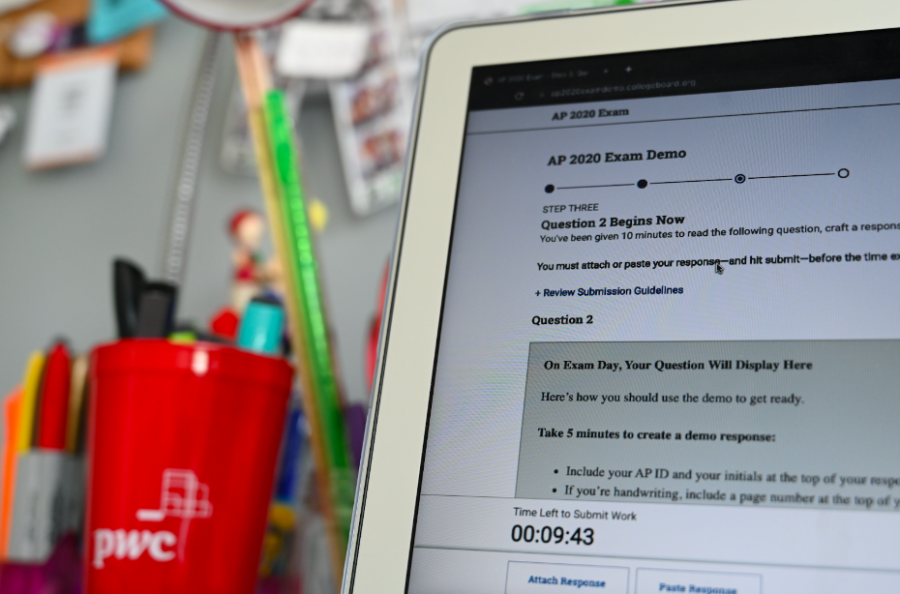College Board faces backlash after poorly-conducted AP Exams
June 12, 2020
The chaos wreaked upon the U.S. by COVID-19 left the College Board scrambling to determine how to proceed with Advanced Placement (AP) testing, with the hope of maintaining a degree of normalcy and consistency for students. After a survey of 18,000 AP students yielded that 91 percent were opposed to canceling their exams, the College Board decided to proceed with AP testing. Despite the initial overwhelming support for continuing the exams, others found that it was wrong of the College Board to do so.
“Schools around the country [have] scaled down their learning, some even not giving grades out,” sophomore Edward Paras said. “It’s unconscionable of the College Board to force students to take these high-pressure exams in a completely new environment during an already tumultuous time.”
As students this year didn’t receive the usual class time to prepare for their exams, the College Board modified tests to make them more manageable. These changes included a smaller portion of the curriculum being covered, fewer questions asked and the entire exam being open note with a 45-minute time limit. However, this year’s exams also presented students with more opportunities to cheat.
“People would find a way to cheat regardless of the circumstances,” sophomore Harini Sethu said. “Though, this year’s tests definitely made it easier for them.”
Because the exams were administered online and taken in the comfort of their own homes, students were potentially able to collaborate and discuss answers using shared documents on other devices or through various video conferencing apps, as well as enlist the help of any person living with them. In an attempt to catch students who cheated on exams, the College Board is rumored to have created fake social media accounts in order to coax students into admitting their wrongdoing. These rumored attempts to draw out cheaters and punish them have furthered many student’s distrust of the College Board and exasperation at their ineffective response to AP testing concerns.
“I found the situation to be really funny,” sophomore Alissa Nguyen said. “It was just so obvious that the College Board was behind the account.”
When taking their AP exams, students also faced a number of technical difficulties that caused outrage among many students and parents. Two of the most substantial flaws in the tests were its discriminatory nature against students with disabilities such as vision impairment, as well as the inability for many students to submit their work. Though the College Board did attempt to remedy this by the creation of an emailing system to provide students with a second chance to submit, their efforts were not applicable to those who tested in the first week of exams. Those students, along with ones who were unable to submit for various reasons after the precautions, had no alternative but to retake their tests in June.
“I actually didn’t have problems with my exam,” Sethu said. “I know a lot of people that did, though, and I understand why they’re angry.”
In response to the onslaught of technical issues that put thousands of students at a disadvantage, the College Board now faces a class-action lawsuit with $500 million in potential damages. Additional demands include an allowance of students to re-submit their initial answers instead of retaking the exam in June.
Accused of gross negligence, breach of contract and misrepresentation and violations of the American With Disabilities Act, as reported by Forbes, it is clear that the College Board failed to administer exams that would guarantee equity for students and meet their most basic needs.
“The only thing the College Board did right was listen to the AP students and give them an exam, but it doesn’t excuse the fact that they did the bare minimum,” Nguyen said. “It felt like a grabby attempt to make more money instead of actually trying to make an exam that was fair for all students.”


